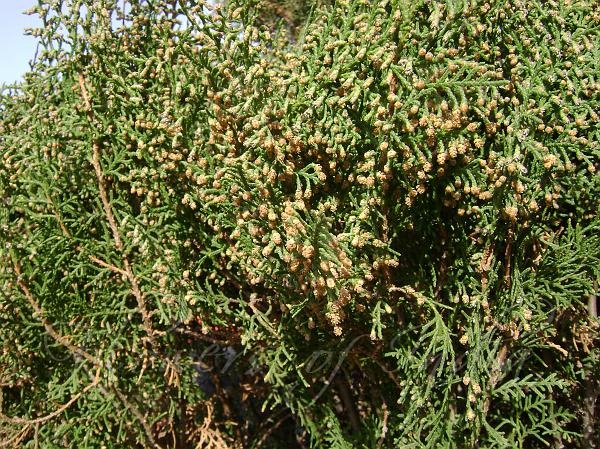|
| Morpankhi |
|

|

| File size | 1960921 |
| Original date | 2/16/08 1:20 AM |
| Resolution | 2592 x 1944 |
| Flash | Flash did not fire, auto |
| Focal length | 5.8mm |
| Exposure time | 1/200s |
| Aperture | 5.6 |
| Focus Distance | |
| Metering Mode | Spot |
| Camera make | SONY |
| Camera model | DSC-S650 |
| Sensor type |
|
|
|
|
Photo: |
Botanical name: Platycladus orientalis Family: Cupressaceae (Cypress family)
Synonyms: Thuja orientalis, Biota orientalis
Synonyms: Thuja orientalis, Biota orientalis
Morpankhi is a plant which is found in every small garden in India.
Belonging to the cypress family, it is a densely branched evergreen conifer
that can become 50 ft tall with a spread of 20. However, it is commonly grown
as a smaller, bushier shrub. It tends to have several to many stems, but can
be trimmed to a single leader stem creating a treelike form. The overall
shape is conical, with the crown becoming more irregular and spreading with
age. The bark is rusty-brown and fibrous. The numerous slender ascending
branches support shoots that spread out in flat, vertical planes. The leaves
are like little scales overlapping and tightly packed on the shoots.
The cones are 15-25 mm long, green ripening brown in about 8 months from
pollination, and have 6-12 thick scales arranged in opposite pairs.
Morpankhi is native to China and Korea, but cultivated as an ornamental
plant the world over.
| Identification credit: Radhika Vathsan | Photographed in Delhi. |
• Is this flower misidentified? If yes,